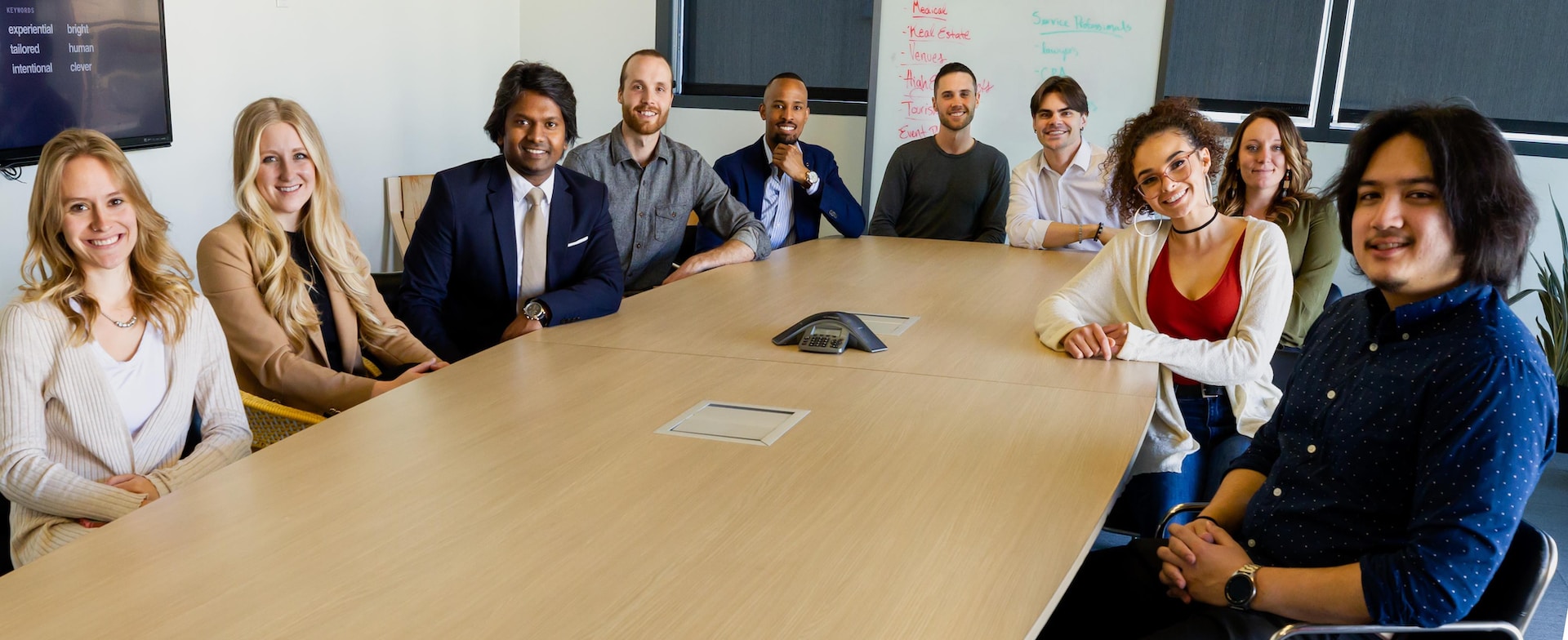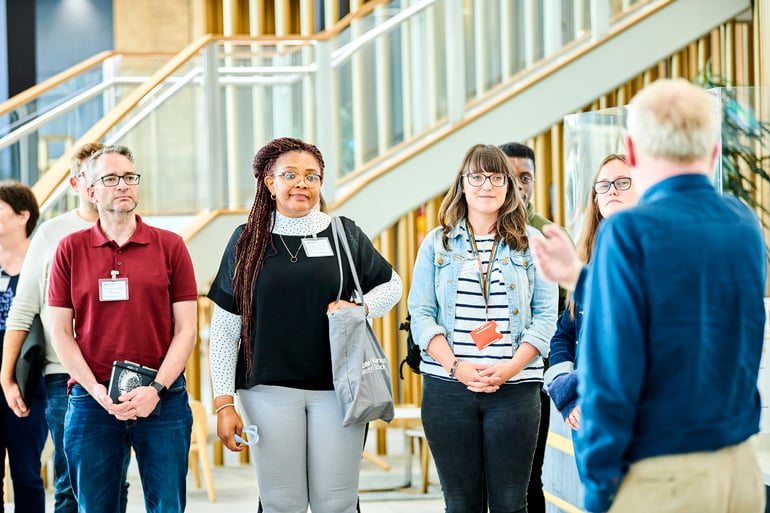Becoming an ‘inclusive’ leader - what does this mean?
26 July 2023 | By: Newcastle University | 3 min read
It pays to be inclusive, whether its benefits are personal or financial. According to the Harvard Business Review, feeling included in the workplace is linked to a 56% increase in job performance, a 50% drop in turnover risk, and a 75% reduction in sick days. We asked Newcastle University Business School’s Dr Nicola Patterson and Professor Sharon Mavin for their insights on how to be a more inclusive leader in the age of the Great Resignation.
Contents:
-
What is Inclusive Leadership?
-
Why is Inclusive Leadership Important
-
How do you Develop this Approach as a Leader?
-
What Leadership Courses would you Recommend?
What is inclusive leadership?
Becoming an ‘inclusive’ leader is now expected from many organisations - but what does this mean?
Some see inclusion as knowing about equality legislation and acting accordingly. Others view inclusion as something more meaningful – something that becomes core to their leadership. Here we outline our understanding of what is inclusive leadership, introduce you to a framework for inclusive leadership - based on uniqueness and belonging, and offer some examples of how we develop inclusive leadership.

According to the Centre for Creative Leadership, inclusive leadership is shown through ‘individuals who are aware of their own biases and actively seek out and consider different perspectives to inform their decision-making and collaborate more effectively with others’. This means that leaders work at making sure all members of their team are:
- Are treated equitably,
- Feel a sense of belonging and value, and
- Have the resources and support they need to achieve their full potential.
We understand inclusive leadership as effectively about people; how leaders develop self-awareness to support ways of increasing participation and decreasing exclusion[1] for all members of their team(s). This translates into a set of positive leader behaviours that facilitate group members ‘feeling that they belong in the team or group while maintaining their uniqueness as they fully contribute to group processes and outcomes’[2].

Why is inclusive leadership important?
Our approach to developing inclusive leadership through our programmes is based on a framework using Shore et al.[3], where inclusion is reflected through an individual’s uniqueness and whether they feel they belong.
For us, inclusion is the degree to which individuals feel they are group members in ways which satisfy their needs for belonging and uniqueness[3]. This of course includes issues of equality and equity but extends to include everyone. For leadership, it is a way of thinking and doing, which is not reliant on equality legislation. For example, Shore et al. outline:
- Individuals want to be themselves at work (uniqueness) and be accepted. They also want to feel they belong to the team and the organisation – that they are part of something.
- When a unique individual is an accepted member of the group, and the group values the unique characteristics, then individuals feel valued and respected.
- When someone feels they belong at work, they form and maintain strong, stable interpersonal relationships[4].
- We are motivated to protect our uniqueness and to keep both belonging and uniqueness in balance.
- When individuals and groups feel they belong, they have insider status, shared information, participation in decision-making, and have a voice. This is likely to positively impact group feelings of inclusion.
- Those groups that simultaneously integrate uniqueness and belonging, remove obstacles to full participation and can continually learn.
Therefore, individuals experiencing inclusion in a group or organisation ‘involves being a full part of the whole while retaining a sense of authenticity and uniqueness’[5].
Inclusive leadership involves empathy. It also involves emotion, emotional intelligence, and some vulnerability.

How do you develop this approach as a leader?
Our leadership programmes are based on the foundation of inclusion as valuing uniqueness and facilitating belonging:
- We begin with you and developing your self-awareness. We support you to become aware of your own biases and how these impact your leadership practice, such as your preferences for certain things, the values which guide your practice and your openness to different perspectives. Importantly we introduce you to new ways of thinking about vulnerability and ways you can safely challenge your assumptions through self-reflexivity, revealing blind spots.
- We facilitate learning to help you make sense of leadership in relation to your own experiences and leadership practices and to consider leadership from a range of perspectives, allowing you to do a deep dive into your own understandings and practices of leadership. This supports you to recognise the importance of your leadership practice in relation to others – creating social awareness and connection - another key pillar of inclusive leadership.
- We also focus on the significant changes in work and society and ask you to consider wicked problems in a context of social justice for their leadership in organisations, for society and the Sustainable Development Goals. This safely takes you out of your comfort zone to consider leadership in new innovative ways.
Throughout the programmes, in a safe context, we consider aspects of individual uniqueness, and approaches to facilitating belonging, through research, policy and your experiences, combined with those of other learners, and encourage you to experiment with new inclusive leadership approaches in your organisation.

What leadership courses would you recommend?
Strategic Leadership MSc is a part-time, flexible, work-based programme. It's delivered using a blended learning model, and you'll have monthly one-day study blocks on campus during teaching time. This will still allow you to study flexibly around your commitments. The MSc is designed for established organisational leaders and for those aspiring to become one.
The Level 7 Senior Leader Apprenticeship is a qualification aimed at individuals who are in, or moving into, strategic roles. It will support organisations that want to build leadership capacity within their team. We work closely with the Chartered Management Institute (CMI). The apprenticeship is a vocational part-time programme, which allows learners to study alongside work. It combines personal and professional development with a focus on workplace performance allowing employees to utilise learning in the workplace throughout the programme.
Find out more:
- Dr Nicola Patterson is a Senior Lecturer in Leadership Development at Newcastle University, Co-founder and Co-Chair for Gender and Entrepreneurship North East (GENE), and Degree Programme Director for the MSc Strategic Leadership & Strategic Leadership Level 7 Senior Leader Apprenticeship.
- Professor Sharon Mavin is the Professor of Leadership and Organisation Studies at Newcastle University. Her research focuses on leadership, women leaders’ experiences, gender, and identity.
- Discover more about the Strategic Leadership MSc and the Level 7 Senior Leadership Apprenticeship programmes at Newcastle University by reading their course overviews.
References:
[1] Booth, T., Ainscow, M., Black-Hawkins, K., Vaughan, M. & Shaw, L., 2000. The index for inclusion: developing learning and participation in schools (Bristol, CSIE).
[2] Randel, A. E., Galvin, B. M., Shore, L. M., Ehrhart, K. H., Chung, B. G., Dean, M. A., & Kedharnath, U. (2018). Inclusive leadership: Realizing positive outcomes through belongingness and being valued for uniqueness. Human Resource Management Review, 28 (2), 190.
[3] Shore, L. M., Randel, A. E., Chung, B. G., Dean, M. A., Holcombe Ehrhart, K., & Singh, G. (2011). Inclusion and diversity in work groups: A review and model for future research. Journal of management, 37(4), 1262-1289.
[4] Baumeister, R.F. and Leary, M.R., 1995. The need to belong: desire for interpersonal attachments as a fundamental human motivation. Psychological bulletin, 117(3), p.497.
[5] Booysen, L., 2013. The development of inclusive leadership practice and processes. Diversity at work: The practice of inclusion, pp.296-329.
